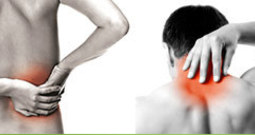
Most people enjoy the snow, at least a little bit. From kids (and adults) making snowmen, snow angels and huge piles of snowballs, to couples staying indoors with a hot chocolate and watching the landscape turn white: winter weather can be really quite beautiful. However, it can also be rather dangerous if you don’t take suitable proper precautions.
As winter takes hold in the Northern Hemisphere, more and more people will be finding themselves removing snow from their driveways and sidewalks, an activity that can easily lead to injury. Hypothermia, back and shoulder injuries, slips and falls, and even heart attacks can all occur because of improper shovelling. The danger is not confined to the driveway either; falls while clearing snow from the roof also account for injuries such as spinal fractures, extremity fractures and head injury.
Clearing Snow
There are several things you can do to minimise the risk of injuries while clearing your home of snow.
- Stay covered - You might get hot and sweaty while shovelling, but your body is still susceptible to the cold. Keep your gloves on to prevent your fingers from getting frostbite.
- Don’t drink coffee to warm up - The caffeine in it can increase your heart rate. Stick to hot cocoa (this has smaller amounts of caffeine) or, better yet, decaffeinated tea. An elevated heart rate interferes with the normal function of the heart and can be very dangerous. The biggest risk of an elevated heart rate occurs if a person already has a weakened heart. People with any type of cardiovascular disease, older adults or sedentary individuals need to take extra care that their heart rate does not get dangerously elevated.
- Keep hydrated - Take a water break every 20-30 minutes.
- Warm up first. Shovelling can be an intense exercise so warming up your muscles and getting your heart pumping before you start will reduce your risk of muscle strain.
- Shovel smaller loads. Over the course of a driveway you can shovel a ton of snow (literally). By making each load smaller, you can avoid strain on your back.
- Lift with your knees, not your back.
- Step in the direction you are throwing the snow and avoid twisting.
- Don’t keep your hands together on the shovel. Spacing your hands apart will make it easier to lift.
- Use a smaller shovel. This will force you to pick up smaller loads and the decrease in weight can save your back and other muscles.
- Don’t wait until the snow stops and then try to get rid of all of it at once. Go out a few times during breaks in the storm to clear the driveway of a smaller amount of snow.
- Take breaks. (Grab a drink of water at the same time.)
- If possible, push the snow to the side instead of lifting it.
- And for a shovelling home remedy: if wet snow is sticking to your shovel, cooking spray will allow the snow to slide off more easily.
Heart attacks that occur during winter months are most frequently attributed to shovelling snow, if there has been a snow storm. If you know you will be dealing with snow this winter, visit your doctor for a check up.
For more tips on how to shovel safely and reduce your risk of injury, talk to the trained, licensed physiotherapists at Physio Med. They will let you know if you are healthy enough for the activity and give you more steps to take to further minimize any damage that might occur. If you have already suffered an injury because of shovelling or any other activity, one of our physiotherapists would be happy to assess your injury and create a program tailored specifically to your needs and goals. Call Physio Med to make an appointment or to ask any questions you may have.
How Physio Med can help
Our skilled and helpful physiotherapists are here to create a fitness plan that’s ideally suited to you during the winter months. We can also recommend stretching and breathing exercises that will help you to remain limber and comfortable even on the coldest days. Contact Physio Med today for professional, friendly and tailored advice.
Tel: 0113 229 1300
Web: Contact Us Form



